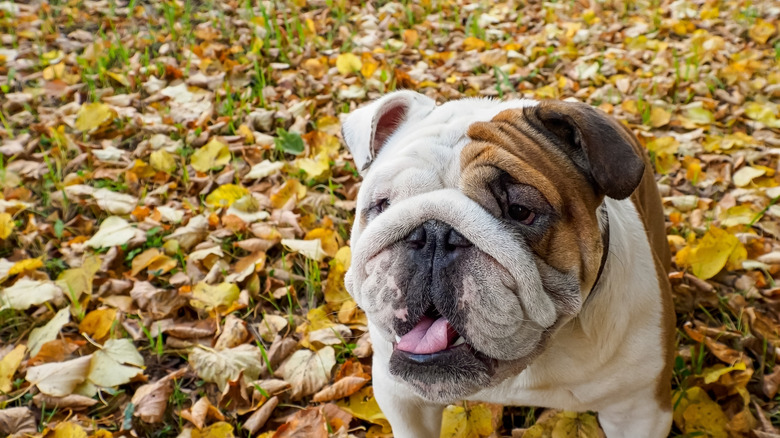What Is A Piebald English Bulldog?
Known for its unique physical stature and calm, lovable nature, the English bulldog is one of the most popular dog breeds in the world. These medium-size pooches are characterized by their squat stature and short, wrinkled faces. They also come in a variety of coat colors. According to the American Kennel Club specifications, coat colors are preferred in the following order: red brindle; all other brindle; solid white; solid red, fawn or fallow; and piebald.
Now wait, what in the world is piebald? No, it doesn't refer to a hairless English bulldog who likes pie. Rather, it refers to a special coat pattern caused by a recessive gene. The result is a completely unique, speckled or spotted appearance.
What does piebald look like?
Piebald is a term that refers to a white pattern occurring throughout the dog's coat. Bulldogs have several variations of piebald coloring: red piebald, red brindle piebald, fawn brindle piebald, brindle piebald. This means that those colors occur as spots or "saddles" on a white background.
According to the breed standard, the ideal piebald pattern contains consistently sized shapes across the pup's coat. Of course, these strict regulations only matter for situations like competitive dog shows. If your pup has uneven patches, they've still got piebald coloring.
Considerations
The piebald spotting gene creates the piebald pattern and is commonly seen in beagles, bulldogs, cocker spaniels and English setters. This pattern can be related to deafness but is usually only a problem when the inner ear is also lacking in pigment (that is, when the inner ear is white as well).
Due to the English bulldog's facial structure, these dogs are prone to snuffling, snorting and snoring. The shortened nose, standard in bulldogs, elevates the risks of overheating. These dogs should always be kept in shady places, with plenty of air circulation, to avoid respiratory difficulties.


